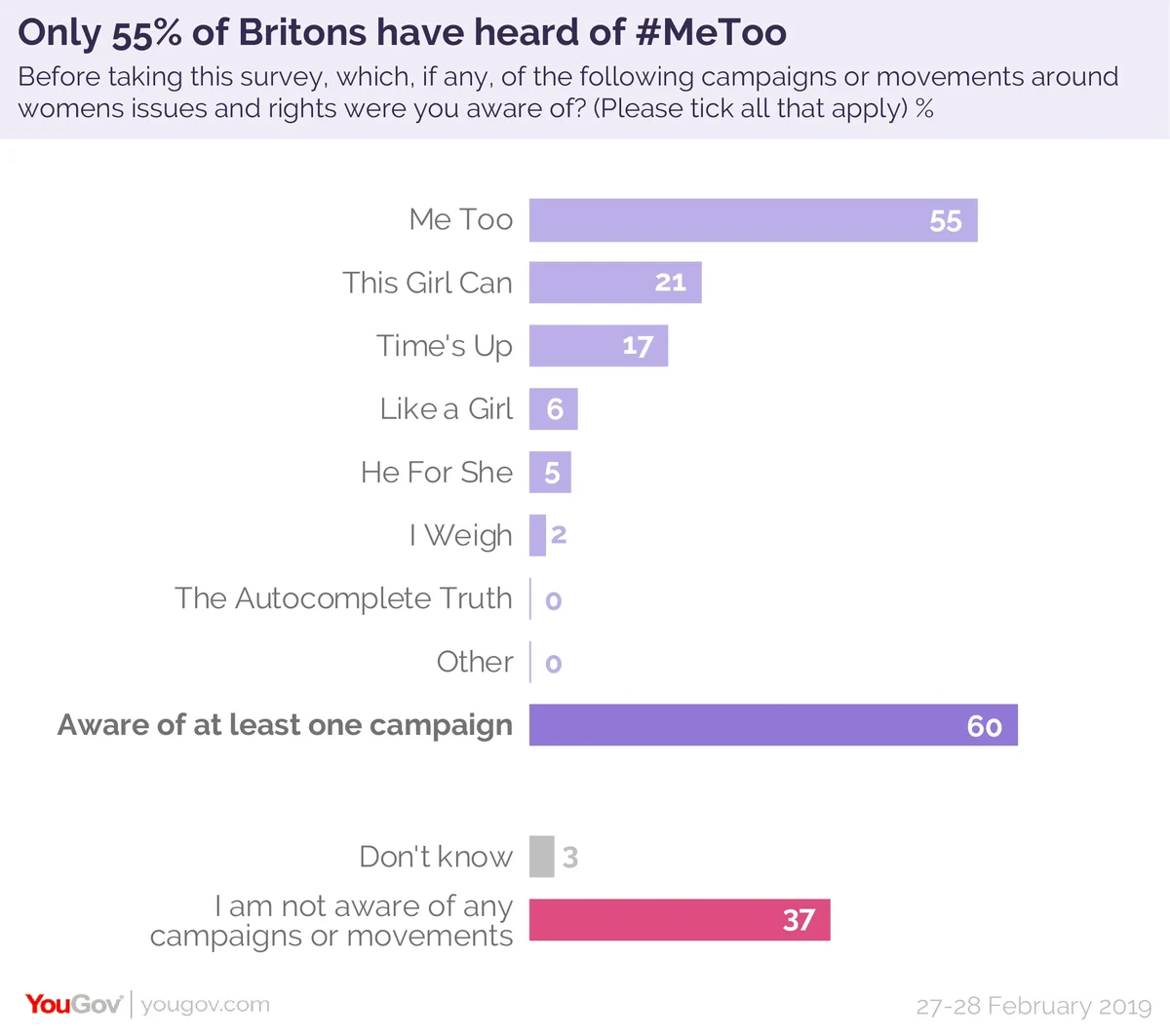How have opinions changed since the sexual abuse scandal that thrust #MeToo into the public consciousness first broke in Hollywood?
The #MeToo movement was sparked by claims of sexual misconduct in Hollywood, many involving household names, and encouraged thousands of women across the world to tell their own stories.
Nonetheless, new research shows that the campaign failed to reach many in this country, with awareness lowest among those aged over 65, the working classes and people living outside London.
Just over half of all adults in Britain (55%) are aware of the #MeToo campaign, according to the new YouGov survey.
General awareness has grown but other campaigns still aren’t cutting through
Many are unaware of #MeToo, but other movements are struggling even more for attention. While three in five (60%) know of at least one campaign associated with women’s issues and rights, up from 56% almost a year ago, none of the other campaigns come close to enjoying #MeToo’s level of awareness.

The next closest is This Girl Can on 21%, a figure which has actually fallen six points since March 2018. Similarly, awareness of third-placed Time’s Up fell from 21% to 17% over the same time period.
A person’s age is the best indicator of their likely awareness. Three quarters (74%) of 18 to 24 year olds have heard of at least one campaign, a figure which falls with each successive age group to just 48% of those aged 65 or older.
More than six in ten 18 to 24 year olds (62%) have heard of #MeToo. Likewise, 44% of 18 to 24 year olds have heard of This Girl Can, 30% know of Time’s Up and 20% are aware of He for She.
Britons think the campaigns are positive, but are less likely to think they’ve made an impact
Our findings suggest the campaigns may be having a positive, albeit limited, impact.
Over half of Brits (57%) think these campaigns have generally been a good thing, largely consistent with results from last year. Women and young people in particular are likely to think the movements have been positive (62% and 66% respectively).
This perception doesn’t necessarily translate into believing that anything has changed, however, with fewer than half of people thinking the campaigns and movements have positively impacted women (45%).
And while 39% think the campaigns had a positive impact on society as a whole, fewer think this is the case regarding themselves personally (25%), their close friends (21%) or their family (18%).
When it comes to the workplace, a third (36%) believe the movement has had a positive impact, and a similar figure think it has served to improve the media’s portrayal of women (35%).
But when it comes to those whose behaviour most needs to change – those men who have mistreated women – just 16% think the campaigns will have made a positive difference. In fact, just as many thinks they will have made a negative difference (18%).
Photo: Getty







